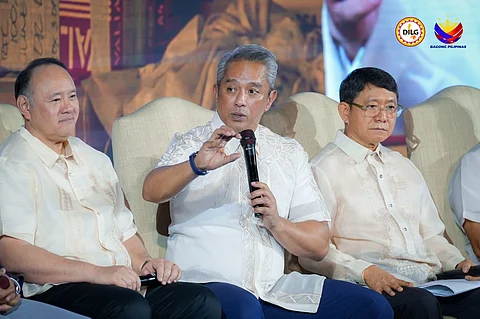
- NEWS
- the EDIT
- COMMENTARY
- BUSINESS
- LIFE
- SHOW
- ACTION
- GLOBAL GOALS
- SNAPS
- DYARYO TIRADA
- MORE

Interior and Local Government Secretary Jonvic Remulla on Tuesday said the administration of President Ferdinand R. Marcos Jr. has dismantled the reward system that previously enabled corruption and drug recycling within law enforcement.
Speaking during post-SONA discussions, Remulla said the old system incentivized operatives to intensify anti-drug efforts — sometimes resulting in extrajudicial killings and planted evidence — just to earn monetary rewards.
He cited the case of so-called “ninja cops,” who allegedly kept up to 90 percent of seized illegal drugs, submitted only a small portion to authorities, and resold the rest on the streets.
He credited President Marcos for ordering an end to the practice and for shifting to a no-reward policy, including halting “bodega” operations, or the stockpiling of confiscated narcotics.
“Ngayon po may sistema na within so many days may destruction kaagad, wala na pong recycling ng drugs ngayon sa Pilipinas. Hindi na tayo nagbobodega, diretso sunog na,” Remulla said.
The DILG chief said confiscated drugs are now destroyed through a scientific process to eliminate all narcotic content and prevent recycling.
“Under 700 degrees of heat for 12 hours, ginigiling po talaga yung drugs na ‘yan, tapos it takes another 12 hours to cool down, tapos titingnan yung abo, ite-test yun sa laboratoryo, kung may drug component pa rin siya,” he explained.
As a result of the policy shift, Remulla said the street price of methamphetamine, or shabu, rose by 35 percent — an indicator of dwindling supply. He added that the government’s anti-drug campaign now focuses on disrupting the supply chain rather than relying on consumption-based tactics.
Most notably, Remulla emphasized that the current campaign operates without violence.
“The drug war is working without killing anyone,” he said.
